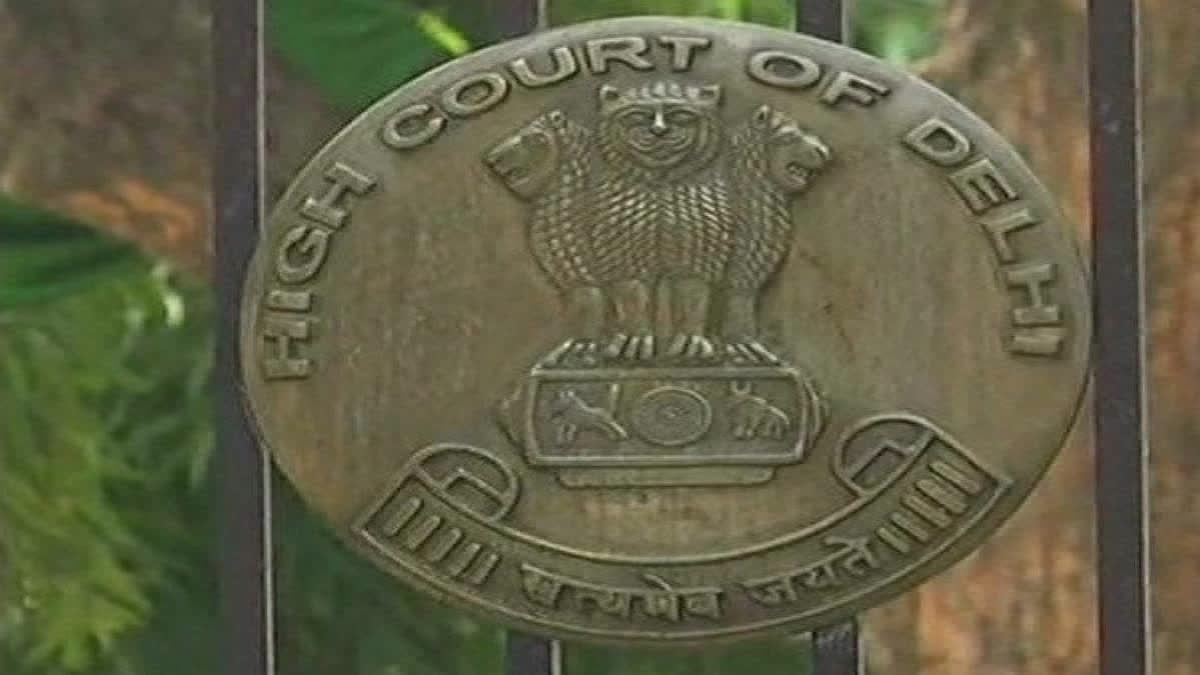New Delhi: Courts cannot allow an inadequate prison healthcare system to violate an inmate's right to timely medical care, the Delhi High Court held while directing the city government to ensure that proper medical infrastructure is maintained in jails here. Observing that the Delhi government is responsible for the management and maintenance of prison premises here, the high court directed authorities to ensure that healthcare requirements of jail inmates are met.
The court also directed the secretary of the Delhi government's health and family welfare department to constitute a committee, which, apart from him, will include the director general (prisons), chief medical officer (CMO) of Delhi Prisons, two senior jail visiting judges of district courts to be nominated by the principal district and sessions judge (central district), secretary of the DSLSA and two advocates.
The committee, the high court said, will give suggestions to it within one month regarding improving healthcare facilities in prisons and ways to promote equal healthcare to all prisoners. "The committee will also specifically inform the court as to whether facilities are available in the jail hospital to deal with emergency situations such as cardiac arrest, hemorrhage etc. as the first few minutes in such an eventuality are crucial to save the life of a person," Justice Swarana Kanta Sharma said.
The court's order came while dealing with two applications filed by city-based businessman Amandeep Singh Dhall, arrested by the CBI and the ED in separate cases lodged by them in connection with alleged irregularities in the now-scrapped Delhi excise policy. Dhall in the applications has sought an interim bail for 12 weeks on medical grounds.
The accused has said that the medical staff at the jail hospital was not able to provide physiotherapy sessions and epidural steroid injection for C3-C4 joints prescribed by his treating doctor after his surgery. The court directed that he be admitted to the Safdarjung Hospital, which is a referral hospital according to the Jail Referral Policy, for two weeks.
"However, the applicant shall continue to be in the custody of the superintendent of jail concerned, and the jail superintendent concerned shall ensure that appropriate and adequate security is provided/deputed at the hospital since the accused will continue to remain in judicial custody though under treatment in the hospital," the court said.
Regarding the issue of lack of appropriate medical facilities in Delhi prisons, the high court said this case has brought to light a critical issue concerning the standard of medical treatment within correctional facilities, shedding light on the alarming inadequacies in the healthcare infrastructure for prison inmates.
It noted that the report submitted by the prison dispensary in this case pointed to a distressing reality about the lack of proper medical care facilities, that is, physiotherapy equipment. The absence of these essential equipment not only signifies lack of adequate medical infrastructure in prisons, but also its direct repercussion on the health of inmates requiring physiotherapy, the court said.
The basic right of a citizen to healthcare, while being incarcerated, is not obliterated or surrendered to the State, and prisoners are also human beings and they retain some undeniable human rights which have to be acknowledged by every court of law and the State, it said. "Courts cannot allow an inadequate prison healthcare system to violate a prisoner's right to timely and adequate medical healthcare. Preserving the health of prisoners would require a mechanism to monitor and promote the healthcare system available in prisons," it said.
The court acknowledged that it is not possible for jail authorities, through the State, to have every kind of advanced medical equipment in the jail medical set up to meet the requirements of some prisoners and directed that a high attainable standard of healthcare be ensured in prisons. "In a just and equitable legal system, the principle of equality before the law is paramount. This means that every individual, regardless of their wealth or social status, is subject to the same legal standards and protections," the high court made clear.
It also directed that doctors in-charge of jail dispensaries shall furnish to CMOs a list of requirements of medical equipment essential for medical care of jail inmates. CMOs shall communicate the inadequacies and requirements to jail visiting judicial officers and a weekly report shall be prepared and sent to the secretary (home) of the Delhi government and the issues should be addressed within two days, it said.
Regarding the criminal case, it is claimed by the probe agencies that Dhall allegedly conspired with other accused and was "actively" involved in the formulation of the liquor policy and facilitating kickbacks to the Aam Aadmi Party (AAP) and its recoupment by the "South Group" through various means. The Enforcement Directorate's (ED) money laundering case stems from an FIR of the Central Bureau of Investigation (CBI).
According to the CBI and the ED, irregularities were committed while modifying the excise policy and undue favours extended to licence holders. The Delhi government implemented the policy on November 17, 2021, but scrapped it at the end of September 2022 amid allegations of corruption. Former Delhi deputy chief minister Manish Sisodia is also an accused in the matter. (PTI)



